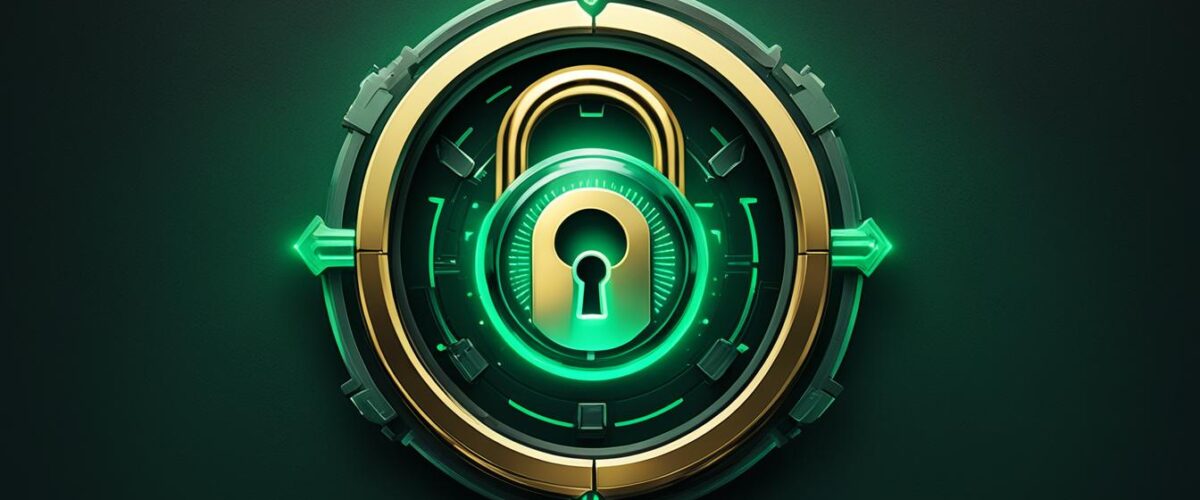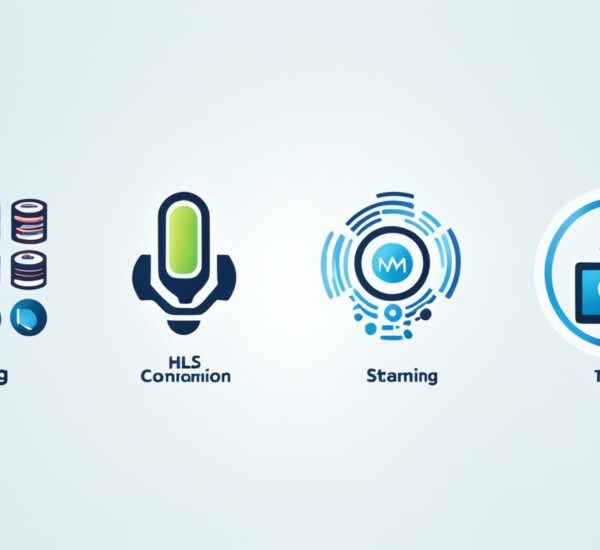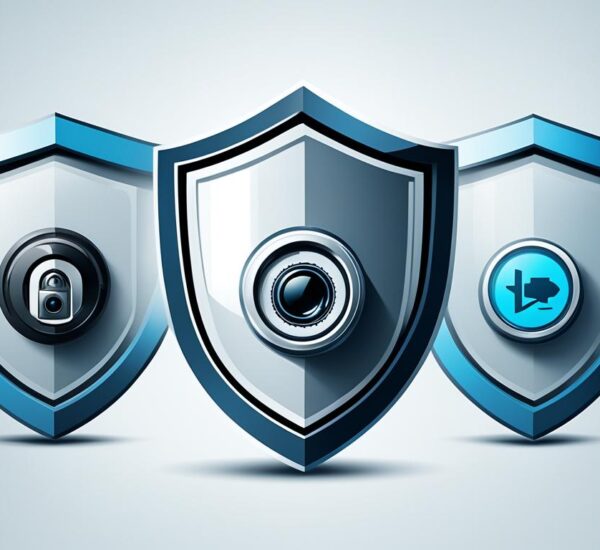Did you know IPTV has become very popular recently? It’s a way to watch TV through the internet. IPTV offers a variety of services, from digital TV to interactive features. It has changed how we watch TV. But, it also needs good security to keep our information safe.
Authenticating users is key in IPTV systems. It makes sure only the right people can watch. However, the way it’s done now, like using a STBID, can make things hard. It might mean more costs to manage users.
This article dives into IPTV user authentication. It looks at various ways to stay secure, the risks, and the smart things to do. We’ll talk about why encryption, secure logins, and network safety are important. And, how updating your software often keeps your data private.
Key Takeaways:
- 1. IPTV is a popular television broadcasting service that relies on IP networks to deliver content.
- 2. User authentication is crucial in IPTV systems to ensure authorized access.
- 3. Existing authentication methods using set-top box ID (STBID) can lead to user management challenges and higher maintenance costs.
- 4. Encryption, secure authentication mechanisms, network security measures, and regular software updates are essential for protecting user data and privacy in IPTV systems.
- 5. The proposed framework for secure IPTV services incorporates secure authentication, lightweight content encryption, DRM, and DCAS.
Background of IPTV Authentication
In our modern world, IPTV is a popular way to watch TV. It uses the internet to show programs, movies, and more. To keep this service safe, user devices need to show they are allowed to watch.
So, here is how it works. When a user wants to watch something, their device asks the system if it’s okay. It does this by saying who the user is, using a special number. Then, the system gives the user a secret word to check if they really are who they say they are.
After the user gets this secret word, they do a special math process with another secret code. This not only proves they are real but also keeps their info private. When the system sees this, it finally knows the user is allowed to watch. Then, it gives them a special key to open the door to watch TV shows safely.
To wrap it up, IPTV has a special way to make sure only the right people can watch TV. It uses secret numbers, secret words, and keys to let the system know you should be watching. And that’s how it keeps your shows safe from others.
Components of IPTV Authentication:
- User Terminal: The device used by IPTV subscribers to access the broadcasting service.
- Certificate Server: The server responsible for verifying the identity of user terminals.
- IPTV Subscriber Number: The unique identifier assigned to each IPTV subscriber.
- HTTP Get Request: The message sent by the user terminal to the certificate server to initiate the authentication process.
- Challenge Word: The encrypted message generated by the certificate server to validate the user’s identity.
- Subscriber Authentication Key: The encryption key used by the user terminal to encrypt and send back the challenge word.
- Business Cipher Key: The key provided by the certificate server for secure access to IPTV services.
| Component | Description |
|---|---|
| User Terminal | The device used by IPTV subscribers to access the broadcasting service. |
| Certificate Server | The server responsible for verifying the identity of user terminals. |
| IPTV Subscriber Number | The unique identifier assigned to each IPTV subscriber. |
| HTTP Get Request | The message sent by the user terminal to the certificate server to initiate the authentication process. |
| Challenge Word | The encrypted message generated by the certificate server to validate the user’s identity. |
| Subscriber Authentication Key | The encryption key used by the user terminal to encrypt and send back the challenge word. |
| Business Cipher Key | The key provided by the certificate server for secure access to IPTV services. |
Understanding IPTV Security Risks
The use of IPTV services is growing. But with it, come worries about keeping data safe and private. People’s personal info in these systems might get out. This can put their privacy and safety at risk.
Data breaches are a big worry. They happen when someone gets into the system without permission. This can lead to bad things like ID theft, losing money, and harm to a person’s name. Cyber criminals use different methods like malware, scams, and trying to hack in. These make the dangers of using IPTV even worse.
Malware is dangerous because it can mess up IPTV systems. It can also harm user data and the system itself. Scams, like phishing, try to trick people into sharing their details. And hacks are attempts by others to get into accounts or networks without permission. This can lead to stealing content or personal data.
There’s also worry over how user data is collected and stored by IPTV. Watching what people like to view and how they watch it can be seen as violating their privacy.
IPTV providers need to make sure their systems are very secure. They should use strong codes to keep out unwanted guests. Adding things like having to prove who you are in two or more ways before logging in can also help.
It’s key to keep user information safe in IPTV. By taking strong security steps and staying ahead of the dangers, IPTV providers can make sure their services are safe for everyone to enjoy.
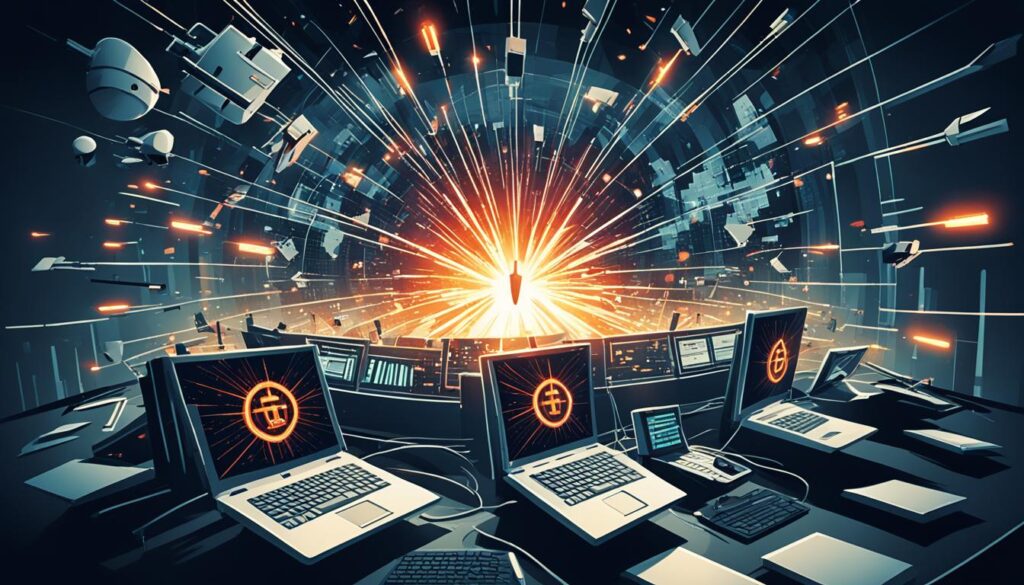
Key Risks:
- Data breaches
- Unauthorized access
- Malware
- Phishing attacks
- Hacking attempts
Essential Security Best Practices
Keeping IPTV systems secure is key. You can safeguard user data by following important steps. Let’s look at how to keep your IPTV platform safe.
Encryption and Data Protection
Encryption is vital in stopping access to user data without permission. It turns data into a code that’s unreadable, even if caught. Use strong encryption to keep user information safe across the IPTV system.
Secure Authentication Mechanisms
It’s essential to have strong log-in methods for IPTV accounts. Two-factor authentication adds extra security. It uses both a password and a verification code to log in. This reduces risks from password guessing. Also, tell users to make their passwords strong.
Network Security Measures
Protecting the network is a must from dangers outside. Firewalls help by stopping unauthorized network visits. Systems that spot intrusions watch for odd behavior. Virtual private networks (VPNs) make sure remote links are safe, lowering data theft risks.
Regular Software Updates and Patch Management
It’s important to keep IPTV software updated. This fixes security holes and bugs. Update software often to add the latest safety updates. Have a way to put in updates safely and test them well before use.
In short, use encryption and data protection, strong log-in methods, network safety, and update your software often to keep IPTV systems secure. Doing these things will guard user information well, stop unsafe log-ins, and build trust in your IPTV platform.
| Best Practice | Description |
|---|---|
| Encryption and Data Protection | Implement encryption protocols to protect user data from unauthorized access. |
| Secure Authentication Mechanisms | Utilize two-factor authentication and encourage strong password creation. |
| Network Security Measures | Implement firewalls, intrusion detection systems, and virtual private networks. |
| Regular Software Updates and Patch Management | Maintain up-to-date software and apply security patches regularly. |
Importance of Encryption and Data Protection
Data security in IPTV systems is key. Encryption protects user data from reaching the wrong hands. It keeps private info safe and hidden. This is a big deal in keeping things secure.
With encryption protocols in place, IPTV systems are safe all around. They make sure data is safely sent and received, without any sneaky eyes taking a peek. This is how your stuff stays private online.
At both the server and client levels, data protection is serious. Servers are locked down to protect user secrets and important data. On your end, your devices are also kept safe. This is a team effort in keeping everything secure.
Good encryption and protection make users feel safe. They trust the platform more, leading to a better experience. It’s like a digital security blanket for your online world.
For a clear idea of how important encryption is, check out the table:
| Data Security Measures | Benefits |
|---|---|
| Encryption Protocols | Prevents unauthorized access to user data |
| End-to-end Security | Safeguards data during transmission |
| Server Level Protection | Secures user credentials and sensitive information |
| Client Level Protection | Ensures data security on user devices |
Protecting user data in IPTV systems is so important. It builds trust and makes the whole experience better. IPTV providers work hard to keep your data safe.
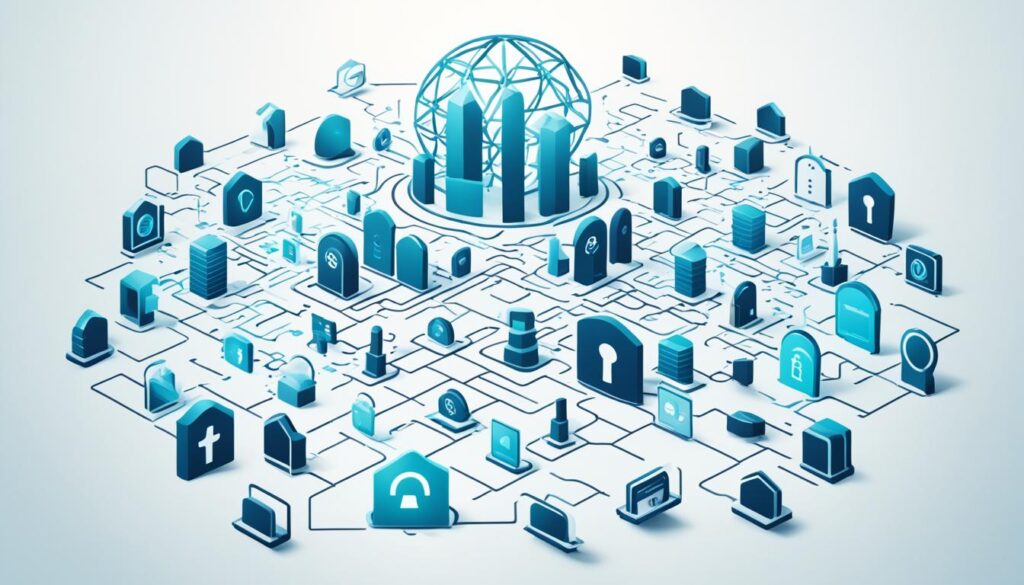
The Role of Secure Authentication Mechanisms
Secure authentication is key to keeping IPTV accounts safe. It stops unauthorized people from getting in. This is important for protecting user information and making sure the IPTV world is secure.
Two-factor Authentication
Two-factor authentication is now widely used and very effective. It needs two different ways to check who you are. For example, a password and a one-time code sent to your phone. This makes IPTV accounts much harder for bad actors to get into.
Adding two-factor authentication to IPTV makes it safer. It works even if someone gets your password. This extra step checks again if the user is really the one they say they are.
Biometric Authentication
Biometric checks use your unique physical traits, like your fingerprint. These are very hard for someone to copy. They make IPTV security even stronger.
It’s almost impossible to cheat with biometrics. Only the real person gets in, adding more security to IPTV.
Strong Passwords and Password Management
Using strong passwords is a must. They protect against hackers trying different passwords to get in. A good password should mix letters, numbers, and symbols. It’s also important to change your password often and never use the same one for different services.
Telling people how to make good passwords is important. This helps make IPTV accounts safe from anyone trying to get in without permission.
Addressing Emerging Security Threats and Vulnerabilities
New dangers keep showing up for IPTV. It’s important to keep making the security checks better to fight these threats.
Always updating how we check who is using the service helps. And knowing the latest in security helps keep IPTV safe. This way, people who watch IPTV can do so without worry.
| Secure Authentication Mechanism | Advantages |
|---|---|
| Two-factor Authentication | – Provides an additional layer of security – Mitigates the risk of unauthorized access – Reduces reliance on passwords alone |
| Biometric Authentication | – Offers advanced and secure identity verification – Difficult to replicate or fake – Provides a high level of reliability |
| Strong Passwords and Password Management | – Protects against brute-force attacks – Ensures password strength and uniqueness – Encourages regular password updates |
| Addressing Emerging Security Threats and Vulnerabilities | – Keeps authentication mechanisms up to date – Incorporates the latest encryption techniques – Proactively mitigates risks |
Importance of Network Security Measures
Network security is key in keeping IPTV systems safe. As more threats and unauthorized tries increase, protecting data and network’s integrity is a must. We’ll look into important security components for IPTV networks.
Firewalls
Firewalls defend the network’s border from outside threats and hacks. They examine and stop bad network traffic. This keeps your data safe from harmful access.
Intrusion Detection Systems
Intrusion Detection Systems (IDS) watch over network activities. They look for odd patterns that suggest there might be a security risk. If they spot something, they act fast to keep the system safe.
Virtual Private Networks
Virtual Private Networks (VPNs) secure connections for remote users. They keep communication encrypted and private. This is very important for using IPTV from risky or public Wi-Fi, preventing data theft.
Few rules to secure IPTVs are using firewalls, IDS, and VPNs. But it doesn’t end with just setting them up. Regular checks and quick responses to threats are a must to keep the system safe.
Network Monitoring and Threat Detection
Network tools watch over activities, hunting for any security issues. They help catch and fix problems before they get bad. This fast action protects your data from being stolen or accessed wrongly.
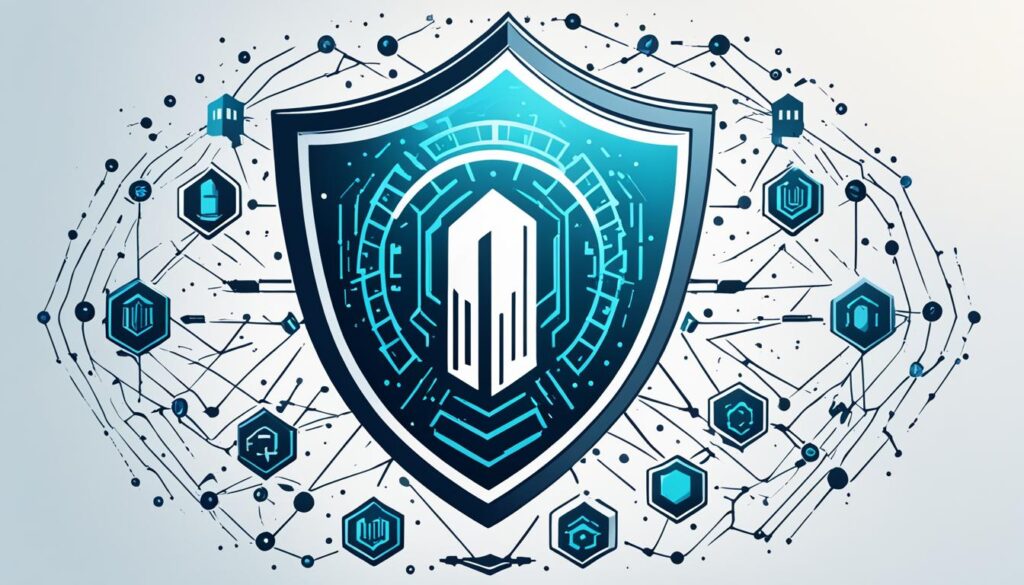
| Network Security Measures | Description |
|---|---|
| Firewalls | Filter and block unauthorized network traffic, acting as a barrier between the internal network and external threats. |
| Intrusion Detection Systems | Monitor network activity, detect potential security breaches, and respond to security incidents. |
| Virtual Private Networks | Create secure connections between remote users and the IPTV network, ensuring encrypted and private communications. |
| Network Monitoring | Continuously monitor network activity, capturing and analyzing data to detect potential security incidents. |
| Threat Detection | Identify and respond to security threats in real-time, mitigating risks and protecting user data. |
Strong network security is crucial now more than ever. By using firewalls, IDS, and VPNs, IPTV providers keep their services safe. This not only protects data but makes the service more trustworthy and better for users.
Importance of Regular Software Updates and Patch Management
Keeping your IPTV system secure is key. Regular updates and patches help with this. They fix security flaws and bugs fast.
Without updates, IPTV systems can be risky. They might be easier for hackers to get into. Updates make the system stronger against these dangers.
Managing patches carefully is crucial. It helps keep the system working well. Testing updates helps avoid problems.
Knowing about new security threats is also important. By following alerts, you can learn how to stay safe. This keeps your system protected against known dangers.
To sum up, updates and patches are vital for a secure IPTV system. They protect your data and the trust of your viewers. Always make security a top priority.
Key Benefits of Regular Software Updates and Patch Management
- Mitigates security vulnerabilities and reduces the risk of unauthorized access.
- Protects user data from potential exploitation and data breaches.
- Maintains system stability while implementing necessary updates.
- Ensures compatibility and minimizes disruptions with thorough patch testing.
- Proactively addresses emerging security threats and vulnerabilities.
| Software Updates and Patch Management | Go | No-Go |
|---|---|---|
| Enhanced security | ✓ | |
| Reduced risk of data breaches | ✓ | |
| Improved system stability | ✓ | |
| Efficient patch testing | ✓ | |
| Protection against emerging threats | ✓ |
Upgrading IPTV software is crucial. It keeps your system safe and efficient. By managing patches well, you lessen the chance of threats.
Understanding Mobile IPTV Security Challenges
Smart devices keep getting better, and internet speeds are faster. This makes mobile IPTV more popular. Yet, it brings new security risks both IPTV providers and users need to tackle.
Data Security
Protecting data is a big part of mobile IPTV safety. People use their phones and tablets to watch IPTV. It’s important to make sure personal info and login details stay safe from hackers.
Identity Theft
In mobile IPTV, someone’s identity could be stolen. This is risky. Cybercriminals might try to use others’ info for bad reasons. Having strong ways to check who’s who helps stop this.
Reply Attack
A reply attack is when a cybercriminal gets between you and the data you’re using. They can then sneak in and look at or change your stuff. This is bad news for those using mobile IPTV.
MIM Attack
In a MIM (Man in the Middle) attack, someone sneaky changes messages between two people. This makes mobile IPTV not safe. Bad actors could get info they shouldn’t or mess with what you’re watching.
To fight these risks, IPTV services need strong ways to check it’s really you. Two-factor logins, using your fingerprint, or complicated passwords help a lot.
It’s also good to use tech that keeps the video secure without making your device slow. And keeping your phone or tablet’s security up to date helps too. This protects against any weak spots hackers might find.
| Mobile IPTV Security Challenges | Recommended Security Measures |
|---|---|
| Data Security | Implement strong encryption protocols to protect user data. |
| Identity Theft | Employ secure authentication mechanisms like two-factor authentication. |
| Reply Attack | Implement measures to detect and prevent replay attacks. |
| MIM Attack | Use secure communication channels and encryption to prevent Man in the Middle attacks. |
Understanding and tackling these mobile IPTV safety issues is key. It helps both IPTV services and users have a safe, smooth time watching on their devices.
Proposed Framework for Secure IPTV Service
A new framework is suggested to make IPTV services more secure. It uses a secure way for people to log in, light encryption for content, DRM, DCAS, and methods to slow down authentication.
The first part is about secure authentication. It uses special codes and your username and password. This makes sure only the right people use the service, stopping others from messing with the shows.
Lightweight content encryption is also brought in. This helps protect videos and cuts down waiting time on phones. This means sneaky folks can’t steal or watch the videos without buying them first.
Downloadable Conditional Access System (DCAS) is used to avoid sneaky watching. It checks that only those who pay can watch. This makes IPTV providers’ money safer and the service securer.
Digital Rights Management (DRM) is another tool for this. It helps the owners of the videos keep control. They can make sure nobody makes copies or shares their stuff without permission.
The last goal is to make logging in and scrambling videos faster. This makes the whole service work better and smoother for everyone who uses it.
Benefits of the Proposed Framework:
- Enhanced security through a secure authentication mechanism
- Protection of multimedia content through lightweight encryption
- Prevention of unauthorized receiving of IPTV services with DCAS
- Protection of digital content through DRM
- Improved efficiency and reduced processing delays
This plan offers a full way to make IPTV safer. It tackles making sure people are who they say, keeping videos safe, and stopping sneaky watching. This way, IPTV services can be trusted to be private and secure, giving a good experience to viewers.
Performance Analysis and Numerical Results
We implemented a new framework for secure IPTV services. Then, we checked how well it worked. We looked at things like how long it took to log in, the extra work for keeping things private, and how much work the system had to do.
Reduction in Authentication Delay
The new way we log in is much quicker. This means less waiting time for checking who you are before you watch TV. It makes the whole process faster and smoother.
Optimized Computational Processing
We made sure the system does not have to work too hard to keep up. Thanks to smart ways of handling things and not wasting any effort, it runs smoothly. This is important for making sure the TV services work well.
Improved Content Protection
Our new system makes it hard for others to look at or change TV shows. It does this without making everything slow. So, your favorite shows stay safe.
After testing, we found our framework enhances security and performance. It makes logging in faster, using less effort from the system. And, it makes sure TV content stays protected. This is good news for both users and the companies that provide these services.
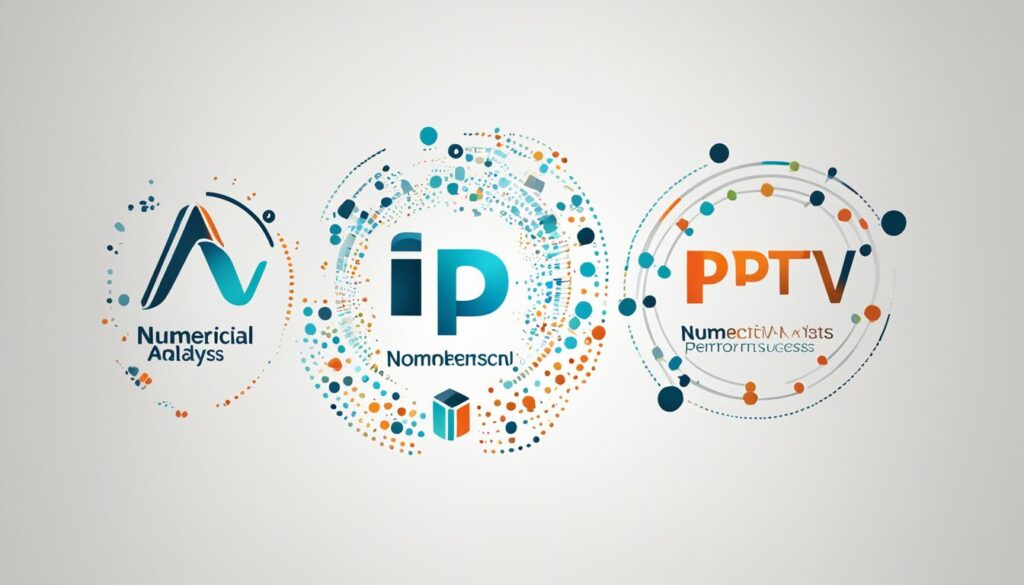
Conclusion
In conclusion, keeping IPTV systems safe is very important. This involves using encryption, secure logins, and keeping software up to date. Doing these things helps keep user information safe and builds trust.
Secure ways to sign in and encrypting the content help deal with risks from mobile IPTV. This keeps things safe for everyone.
The plan we talked about makes IPTV services both safe and efficient. With careful watching and reacting to new threats, companies can keep their service safe for us.
Ensuring privacy and trust in what we watch is key for IPTV and its users. By using strong security, IPTV companies prevent cyber attacks and protect our information. This makes IPTV a better and safer place for everyone.
